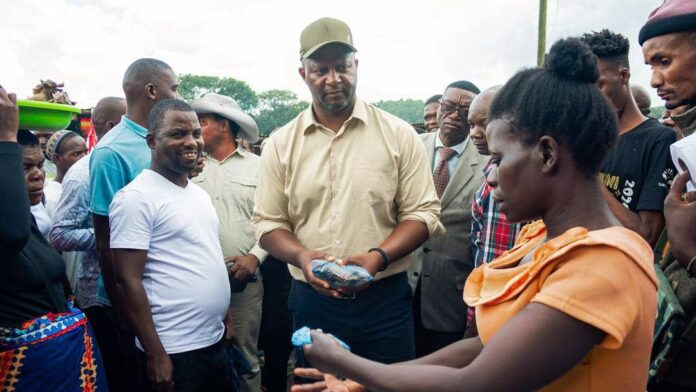By Burnett Munthali
No food means no money.
That is the harsh reality facing countless Malawian families across the country.
Atupele Muluzi, a prominent political figure and presidential hopeful, has drawn national attention to this crisis with a candid and urgent message.
He states clearly that this is the daily truth for many Malawians who are struggling to survive.
Families are being forced to go to bed hungry, and that alone, he argues, is proof enough that Malawi is far from achieving real development.

According to Muluzi, it is senseless to talk about economic growth and progress when citizens are failing to meet the most basic human need—food.
He emphasizes that hunger is not just a symptom of poverty but a root cause of it.
Without proper nutrition and sustenance, people lack the energy, health, and focus needed to work, study, or build a better future.
Muluzi’s message is not just a lament, but a rallying cry for change.
He proposes a straightforward and practical solution that places farming and food production at the center of the nation’s development strategy.
“My plan is simple,” he says, with conviction.
He wants to invest in farming.
He believes that a well-supported agricultural sector can be the foundation of economic recovery and sustainability in Malawi.
Supporting farmers, according to Muluzi, is key to ensuring that food is both available and affordable to every Malawian.
He insists that smallholder farmers need access to modern tools, improved seeds, irrigation systems, and reliable markets.
He also points out that government must reduce the cost of farming inputs such as fertilizer to make agriculture more profitable and less risky.
Muluzi envisions a future where agriculture is no longer seen as a last resort or survival tactic, but as a powerful engine of prosperity.
In his view, empowering rural communities to feed themselves and their neighbors can transform Malawi’s economic and social landscape.
He also highlights the importance of food security as a national security issue, noting that hunger breeds instability and desperation.
If elected into power, Muluzi says he will prioritize food systems as a matter of urgent national interest.
He vows to redirect resources, policies, and political will toward turning farming into a respected and rewarding livelihood.
He assures Malawians that food should never again be used as a weapon of political manipulation or as a symbol of national failure.
“Change is coming,” Muluzi declares with optimism and determination.
He believes that with the right leadership and a renewed commitment to farming, Malawi can rise from hunger and move toward lasting prosperity.
His message has resonated with many, especially in rural areas where people feel forgotten and abandoned by those in power.
As the 2025 elections approach, Muluzi’s focus on agriculture and food security could reshape the political conversation in Malawi.
It is now up to the people to decide whether this vision of change is the one they believe in.



